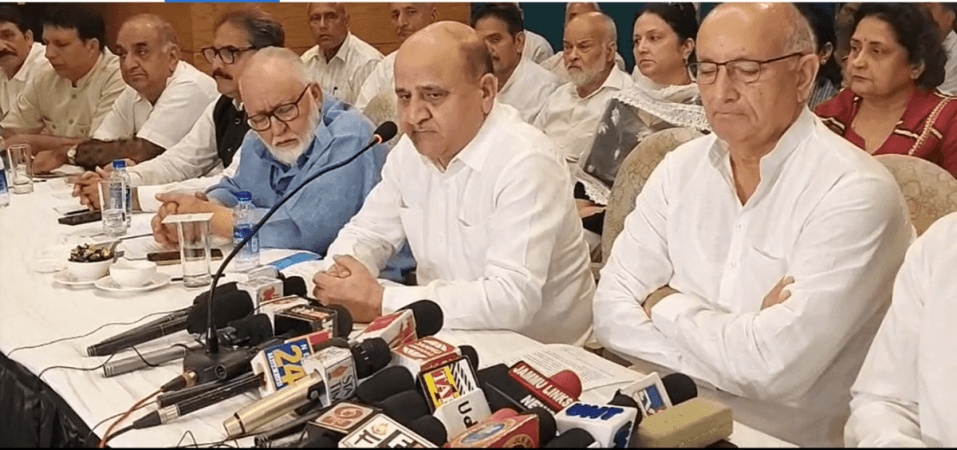
The highly anticipated results of the Jammu and Kashmir assembly elections are beginning to unfold, with the National Conference-Congress alliance taking an early lead in 46 seats, according to initial trends released by the Election Commission. The Bharatiya Janata Party (BJP) trails behind, leading in 29 seats.
Party-Wise Breakdown
- National Conference: 41 seats
- Congress: 5 seats (as part of the National Conference-Congress alliance)
- BJP: 29 seats
- Peoples Democratic Party (PDP): 3seats
- Independents: 7 seats
- Communist Party of India (Marxist) (CPI(M)): 1 seat
- Peoples Conference: One seat
Key Candidates
Several high-profile candidates are leading in their respective seats, including:
- Omar Abdullah, National Conference vice president, leading in both seats he contested
- Tariq Hameed Karra, Pradesh Congress president
- Ghulam Ahmad Mir, AICC general secretary
- M Y Tarigami, CPI(M) leader
- Sham Lal Sharma, BJP's former minister
- Devender Singh Rana, BJP leader
- Dr. Narindra Singh
Prominent among those who are trailing
- Outspoken J& K BJP president Ravinder Raina is facing a tough challenge, trailing behind National Conference's Surinder Choudhary by over 8000 votes in the Nowshera constituency.
- Former Deputy Chief Minister and senior Congress leader Tara Chand is trailing at number three in the Chhamb assembly segment of Jammu district. He is trialing behind an Independent candidate Satish Sharma by 17116 votes.
- Jammu and Kashmir Congress working president and former minister Raman Bhalla is trailing behind BJP's Dr Narinder Singh by 2913 votes in the RS Pura-Jammu South assembly segment.

Earlier counting of votes began on Tuesday morning for 90 Assembly constituencies in Jammu and Kashmir, the final lap of an electoral exercise that will give the union territory its first elected government since 2019 when Article 370 was abrogated.
These are also the first assembly elections in J-K since 2014.
The Congress-National Conference alliance, the People's Democratic Party (PDP) and the Bharatiya Janata Party (BJP) are the main parties in the fray in the keenly watched assembly election that comes five years after the erstwhile state was bifurcated into the union territories of Jammu and Kashmir, and Ladakh.
The counting of votes commenced at 8 am simultaneously amid a three-tier security cover at 28 counting centres set up for 90 assembly constituencies in all the 20 districts, election officials said.
J&K Chief Electoral officer P K Pole said adequate checkpoints have been set up within a 100-meter perimeter of each counting centre and CCTV cameras have been installed in all strong rooms where the EVMs are stored to closely monitor all activities.
"Unauthorised individuals will be restricted from entering these areas and CCTV cameras have been installed at the main entrance and throughout the entire premises of the counting centres to ensure comprehensive monitoring," he said.
Pole said postal ballots will be counted first, followed by the counting of Electronic Voting Machines (EVMs) half a later. Accurate information on each round of counting will be uploaded in a timely manner.
Pole said two counting centres each have been set up for Kupwara, Samba, Jammu, Udhampur and Reasi districts, one each for Srinagar, Ganderbal, Budgam, Baramulla, Bandipora, Anantnag, Kulgam, Pulwama, Shopian, Rajouri, Poonch, Kathua, Kishtwar, Doda and Ramban districts while three counting centres have been set up for migrants.
To monitor the counting process, Election Commission has also appointed various counting observers, he said adding only authorized individuals, officials, or staff will be permitted inside and around the counting centres and the public and political party representatives are requested not to crowd the counting centres and check the results at home.

















